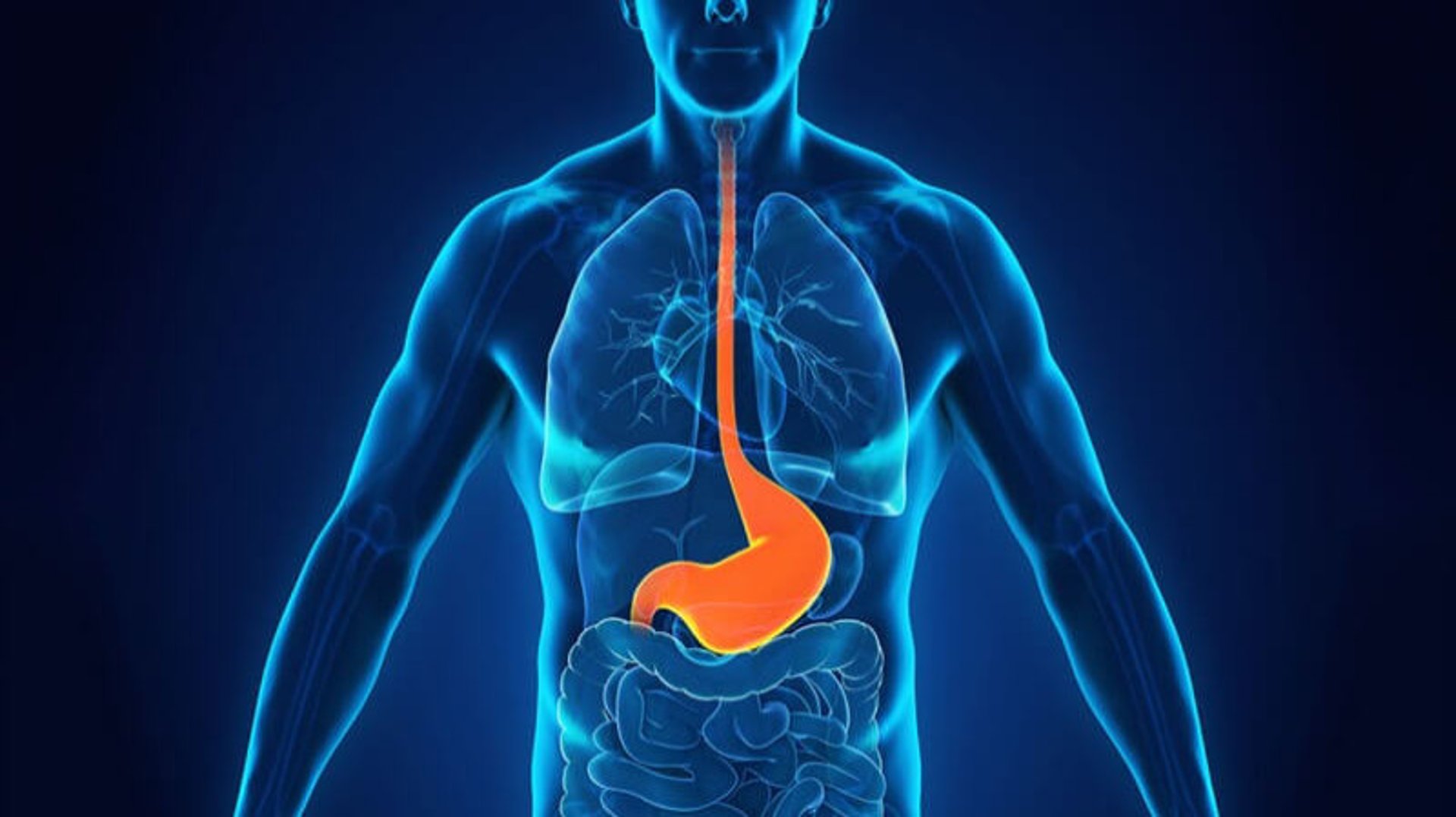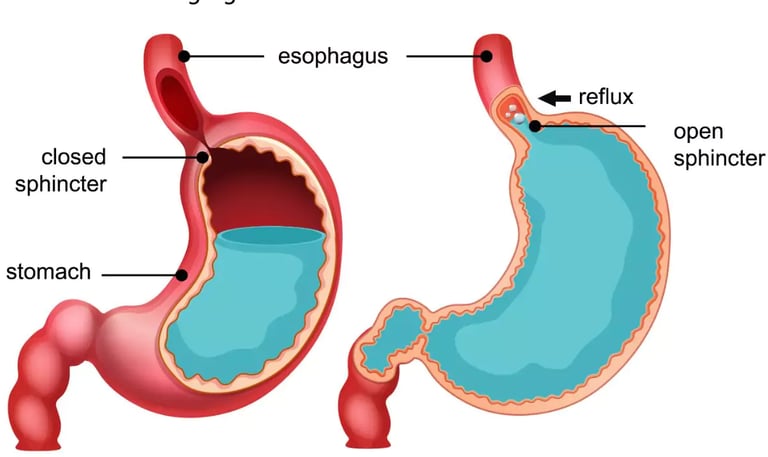
Acid Reflux (GERD)
Acid Reflux, also known as Gastroesophageal Reflux Disease (GERD), occurs when stomach acid or digestive fluids frequently flow back into the esophagus—the tube connecting the throat and stomach. This backwash (reflux) irritates the lining of the esophagus and can lead to uncomfortable symptoms or long-term complications if left untreated.
While occasional acid reflux is common, GERD is a chronic condition that requires medical attention, especially if symptoms occur more than twice a week or interfere with daily life.
Signs & Symptoms of Acid Reflux (GERD)
Common symptoms include:
Frequent heartburn (burning sensation in the chest, especially after meals or at night)
Regurgitation of food or sour liquid into the mouth
Difficulty swallowing (dysphagia)
Chronic cough or sore throat
Hoarseness or voice changes
Sensation of a lump in the throat
Worsening of symptoms when lying down or bending over
In severe cases, untreated GERD may cause complications such as esophagitis, Barrett’s esophagus, strictures, or even increased risk of esophageal cancer.
To confirm GERD and assess its severity, Dr. Kushan Kaushik Sengupta may recommend:
Medical History & Physical Examination: Initial evaluation of symptoms and lifestyle factors.
Upper Endoscopy (EGD): Direct visualization of the esophagus to check for inflammation, ulcers, or precancerous changes.
pH Monitoring: Measures acid levels in the esophagus over 24–48 hours to confirm reflux episodes.
Esophageal Manometry: Assesses muscle function and swallowing ability of the esophagus.
Barium Swallow X-ray: Identifies structural abnormalities like strictures or hiatal hernia.
Diagnostic Procedures


Why Choose Dr. Kushan Kaushik Sengupta for GERD Care?
Specialist in Gastroenterology & Hepatology: Advanced expertise in managing reflux disease and complex digestive disorders.
Expert in Advanced Endoscopy: Skilled in diagnostic and therapeutic endoscopic procedures for GERD and its complications.
Comprehensive, Individualized Care: Treatment plans tailored to lifestyle, severity of disease, and overall health.
Evidence-Based Management: Includes lifestyle counseling, medications (acid suppressants, proton pump inhibitors), and minimally invasive options when needed.
Collaborative Approach: Works with surgeons and nutritionists for holistic GERD management.
Patient-Centered Care: Transparent communication, education, and continuous support to improve comfort and long-term outcomes.